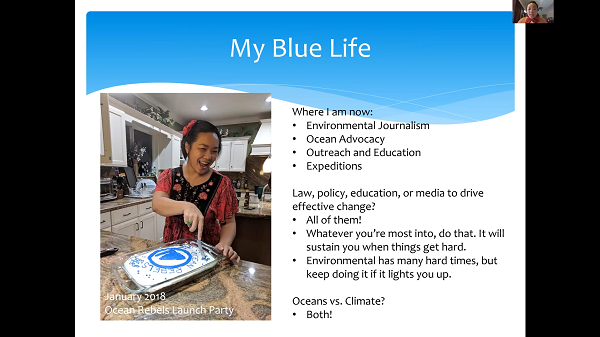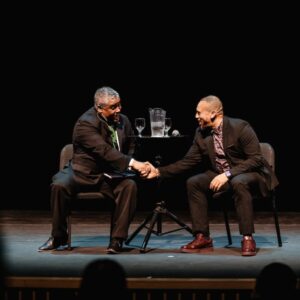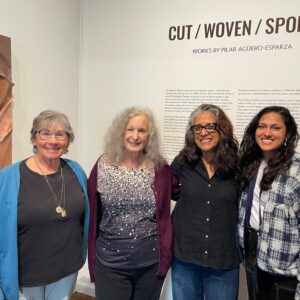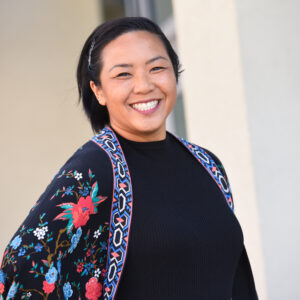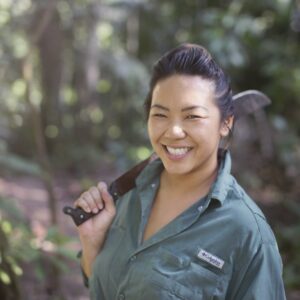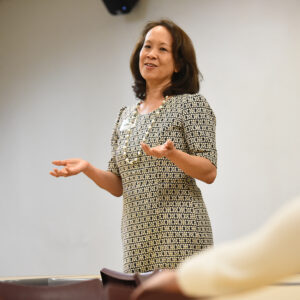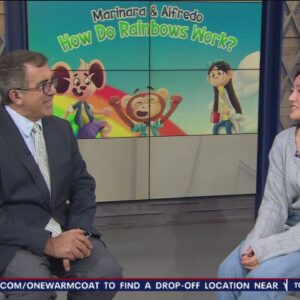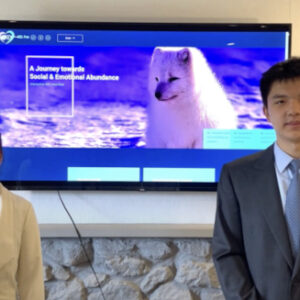Last week, middle school science teacher Tamar Hawk invited environmental activist Tiffany Duong ‘02 to speak with her students about careers in environmental advocacy. Duong, who attended Harker from first grade through grade 12 and was a member of the upper school’s first graduating class, delivered an overview of how she became interested in environmental issues and how her career changed in the ensuing years. She discovered her love for the topic while attending an assembly on the rainforest as a fifth grader. “I wanted to be the person who was standing in front of the bulldozers at the Amazon,” she recalled.
After graduating from UCLA, Duong worked as a renewable energy lawyer, handling contracts and negotiations for solar arrays and wind turbine farms, including California’s Tehachapi Wind Farm and Ivanpah Solar Power Tower. Duong briefly discussed why more states don’t use renewable energy, explaining that issues such as cost and space are considerable hindrances. “There’s not always a storage capability for renewable energy, which makes it hard for some areas to utilize renewable energy,” she said. Politics, including lobbies from major industries, also play a large role. “A lot of people … don’t necessarily believe that climate change is even happening or that this is an issue,” she said.
Duong later discovered that she wanted to be closer to the environment she was working to save, and made a career switch. In 2016, she headed to the Peruvian Amazon, researching biodiversity along newly opened areas of the rainforest, documenting existing species and discovering new ones in order to prevent encroachment from miners and loggers. Her work in ocean advocacy began in 2017, as she helped in the effort to ban drift net fishing in California and tagged sharks in Costa Rica to provide evidence of migratory swimways in order to protect aquatic life. In 2018 she worked to restore coral reefs in the Florida Keys.
Duong continues to go on expeditions in addition to working as an environmental journalist. She advised the students that there is no single most effective way to be an advocate, using her own career as an example. “I’ve worked in law, policy, education and now media, and I think the most effective thing will be the one that you do,” she said. “Whatever you want to do, try it.”
